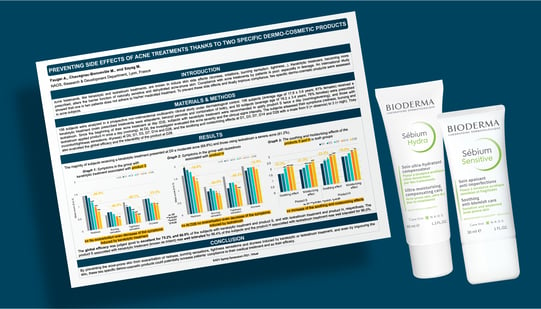Topical or oral retinoids use are one of the standard therapeutics in acne. They provide anti-inflammatory effects and reduce comedones, but lead to several cutaneous side effects, such as local skin irritation, dehydration, desquamation, pruritus, and lipid level alteration at the surface of the skin, which intensity depends on their concentration and formulation of the product. Biologically, these side effects are related to an excessive decrease in sebum production and an altered skin barrier, representing a key issue in patients’ adherence to treatment. Therefore, the aim of this study was to evaluate, under dermatological and ophthalmological control, the safety and the subjective efficacy of a cleansing product in promoting skin comfort to patients undergoing retinoid treatment.

